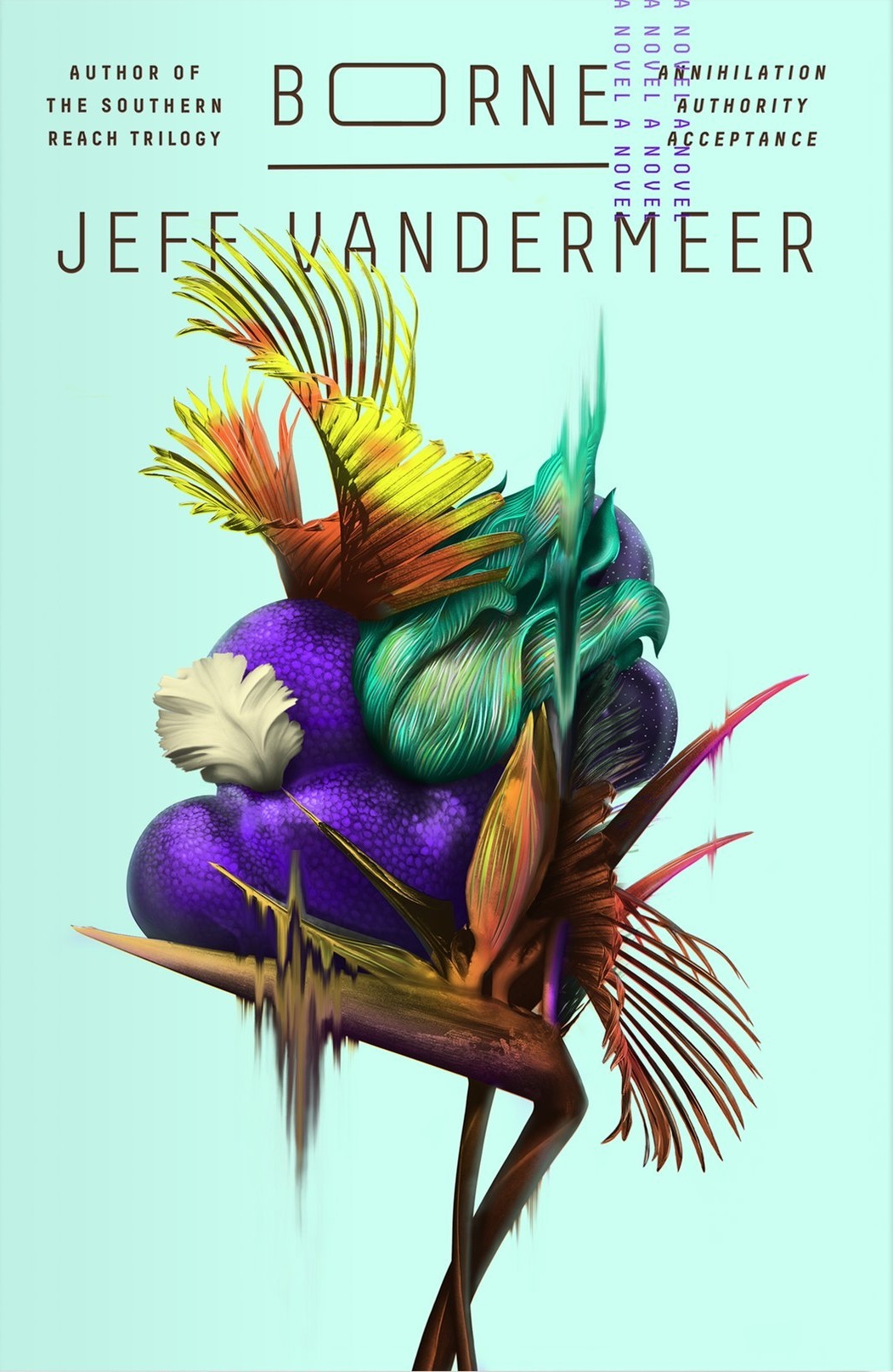What doyouthink?
Rate this book


323 pages, Hardcover
First published April 25, 2017


...I realized right then in that moment that I’d begun to love him. Because he didn’t see the world like I saw the world. He didn’t see the traps. Because he made me rethink even simple words likedisgustingorbeautiful.
That was the moment I knew I’d decided to trade my safety for something else. That was the moment.
Nor could I stop thinking of the perfect little biotech slaves that had paraded themselves around my special cake in the fancy restaurant. In my mind, they kept spiraling that cake for years, as it decayed into black mold and then nothing, and they had to keep trudging around that cake, around and around, singing, until they died in mid-step and their flesh rotted and then faded away, revealing their sad, delicate skeletons.
Which kept dancing.
Beyond the park, I came across the exposed ground level of a skating rink or storage hangar and watched from the threshold as five scavengers sorted through a rich mélange of probably worthless debris. They had a glowworm trapped in an hourglass to see by, and when the sand ran out I assumed they’d move on. Their quarry included filthy plastic bags filled with nothing, old barrels, boxes sagging from water damage and mold, and a few piles of upended garbage that had been there long enough to have already been gone through and to have stopped stinking. But each generation lowered its expectations.






 come to my blog!
come to my blog!
“We all just want to be people, and none of us know what that really means.”It’s a weird story, off-kilter and bizarre, of a world so surreal and fragile, almost like a fever dream, an unsettling hallucination precariously teetering on the edge of a nightmare and occasionally dipping into sheer insanity.
“The real reality is something we create every moment of every day, that realities spin off from our decisions in every second we've alive.”Imagine a nightmarish ruined city which is yet so alive and full of strange biotech from the Company(nothing good can ever come out of a company named “The Company” )— a city ruled and terrorized by a monstrous colossal Godzilla-scale flying bear and its smaller bloodthirsty “proxies”, where a Magician (who mutilates feral children into mutant killers) is wrestling for control with that godlike bear, “autonomous meat” can sometimes be found hanging out in the streets, with poisonous river running through it, scavengers scouring the streets trying to survive, and local biotech fauna including medical worms, attack beetles and alcohol minnows. If you want to survive, you hide and set traps and hope you don’t get mauled.
“In the city, the line between nightmare and reality was fluid, just as the context of the words killer and death had shifted over time.”
“Come close, I could smell the brine, rising in a wave, and for a moment there was no ruined city around me, no search for food and water, no roving gangs and escaped, altered creatures of unknown origin or intent. No mutilated, burned bodies dangling from broken streetlamps.”
“That’s the problem with people who are not human. You can’t tell how badly they’re hurt, or how much they need your help, and until you ask, they don’t always know how to tell you.”It’s a strange world, indeed.
“I’d been teaching him the whole time, with every last little thing I did, even when I didn’t realize I was teaching him.”
“That was the moment I knew I’d decided to trade my safety for something else. That was the moment. And no matter what happened next, I had crossed over into another place, and the question wasn’t who I should trust but who should trust me.”
“He knew now that he could be harmed. He knew now that he was vulnerable. No joy would be the same for Borne. No playfulness, either. Because behind it would be this certain knowledge: that he could die.”
“Those are three dead skeletons on the wall, Borne.”
“Yes, Rachel. I took them from the crossroads. I thought they would look nice in here.”


Now I have tears for Teem,
and the other children,
who are really our grandchildren,
lost in the wilderness we have created of our earth.
Not with a bang, but a whimper.
Our children festering on the corpse of our glory,
descending into starvation
and the terror of encroaching madness.
We witness here the final release of the death
of who we might have been.

“There comes a moment when you witness events so epic you don’t know how to place them in the cosmos or in relation to the normal workings of a day. Worse, when these events recur, at an ever greater magnitude, in a cascade of what you have never seen before and do not know how to classify. Troubling because each time you acclimate, you move on, and, if this continues, there is a mundane grandeur to the scale that renders certain events beyond rebuke or judgment, horror or wonder, or even the grasp of history.”
"We all just want to be people, and none of us know what that really means."

To tell me this, Borne had made himself small and “respectable” as he called it, almost human except for too many eyes. But, really, “respectable” meant he looked like a human undergoing some painful and sludgy transformation into a terrestrial octopus with four legs instead of tentacles.
“Even as ghost facing Borne in that desolate place in the city, I’d come away thinking Borne was a decent person beset by a terrible affliction. No matter how I tried to push beyond that to a place where Borne was evil, horrible, a psychopath, I couldn’t do it.”